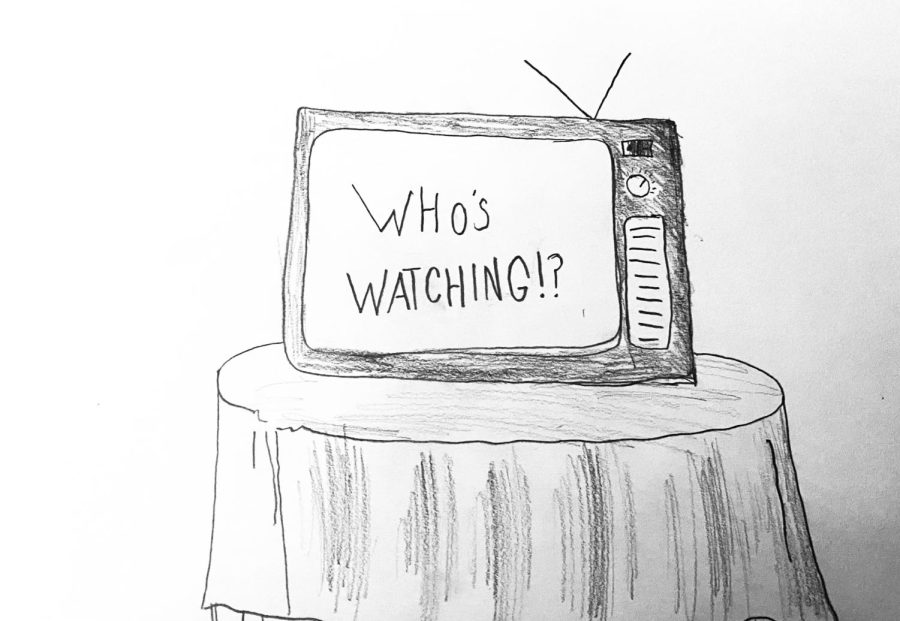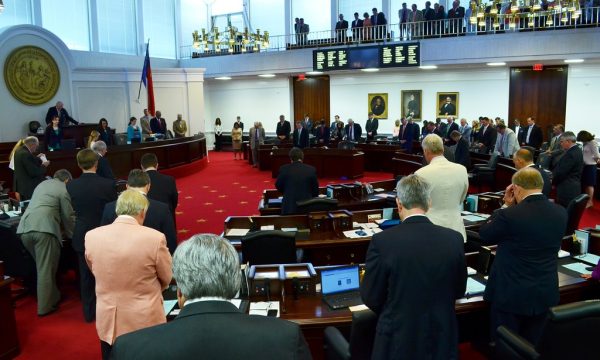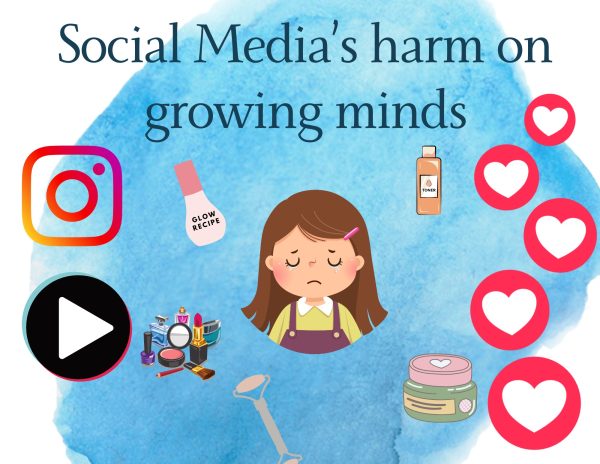Award shows are on their last leg

Award shows are a dying form of entertainment, growing more obscure and irrelevant over the years.
Every year, families all around the world huddle together around their television sets waiting with nervous excitement to see who and what will be recognized as the very best…or at least they used to. Award shows are a relic of the past, dying each year as audiences grow more and more disinterested.
Award shows hit their peak long ago, back in 1998 when The Oscars, one of the most notable televised award shows, hit peak viewership with 57.2 million viewers tuned in across the world. Since then, however, Oscar viewership has rapidly decreased year by year, with 2021 viewership hitting an all-time low compared to previous years. The concept of losing popularity is not unique to the Oscars either. Similarly, notable televised award shows such as the Grammy’s and the Golden Globes have drastically dropped in audience viewership over the past couple of years, with ratings reflecting the audience’s growing disinterest in watching award shows.
So why are television watchers across the world growing so uninterested in watching award shows? When one faces the facts and looks at the common trends of low ratings in recent years, it becomes clear that award shows are fading into obscurity, an antiquity from a pre-internet era. Award shows come from an era before people were made aware of the corruption and popularity games that occur behind the scenes.
At some point, everyone gets tired of observing the same routine. Since their conception in 1959, the Grammys have been broadcast annually with little variation. Viewers don’t have the interest nor time to laze around every year and view virtually the same presentation disjointed and isolated by dozens of commercials.
Considering the outrage from nominees and celebrities concerning award show corruption and the fact that viewers have to go through the unnecessary hassle of paying for cable just to watch, it’s likely that these annual presentations will prove to be too corrupt and too outdated to meet the demands of audiences for much longer.
Another reason various award shows have faded into obscurity is due to the imminent death of cable television. Years ago, if one wanted to watch television, they would be expected to spend high amounts of money on a limited selection of channels, the majority of which probably wouldn’t be interesting to the viewer anyways. In this era of television, cable was a necessary evil. However, with the advancement of the internet and technology, subscription services such as Netflix and Hulu became rapidly available for On-demand TV watching. NY Post estimates Cable TV to cost around $105 on average, having increased by 74 percent since 2000, even with inflation accounted for. With the introduction of much cheaper and limitless subscription services as well as modern Smart TVs, cable TV was pushed to the edge of death. This is where problems regarding viewer engagement occur. Every year, award shows are primarily streamed on cable television. Not a lot of people have cable anymore, making the process to even be able to watch award shows unnecessarily complicated.
For many viewers, the most enticing part of the Grammys and similar award shows are celebrity performances. It’s a hassle to sit through constant commercials and filler content just to see these short performances when one could simply just view these performances online. Having the ability to view performances and specific segments of award shows online instead of paying more to endure the full constantly interrupted program may be a primary culprit of the rapid decline of award show popularity.
It’s important to note that award shows aren’t just dwindling due to loss of interest. If that were the case, they wouldn’t be as disliked as they are. Award shows hold a bad reputation for favoring popularity and ratings over merit and achievement. Celebrities such as music artist Abel Tesfaye, better known as The Weeknd, have spoken out against award shows many times, specifically the music award show known as the Grammys. The Weeknd boycotted the Grammys and indefinitely banned his label from submitting his music for consideration after his highly successful album “After Hours” was not considered for any nomination despite its success. Fellow pop artist Ashley Frangipane, better known as Halsey, commented on the political reasons many celebrities often go overlooked, or “snubbed” by awards shows. In an Instagram story post, she said the key to winning awards was often all about behind-the-scenes private performances, knowing the right people, and bribing higher-ups. Considering the outrage from nominees and celebrities concerning award show corruption and the fact that viewers have to go through the unnecessary hassle of paying for cable just to watch, it’s likely that these annual presentations will prove to be too corrupt and too outdated to meet the demands of audiences for much longer.













